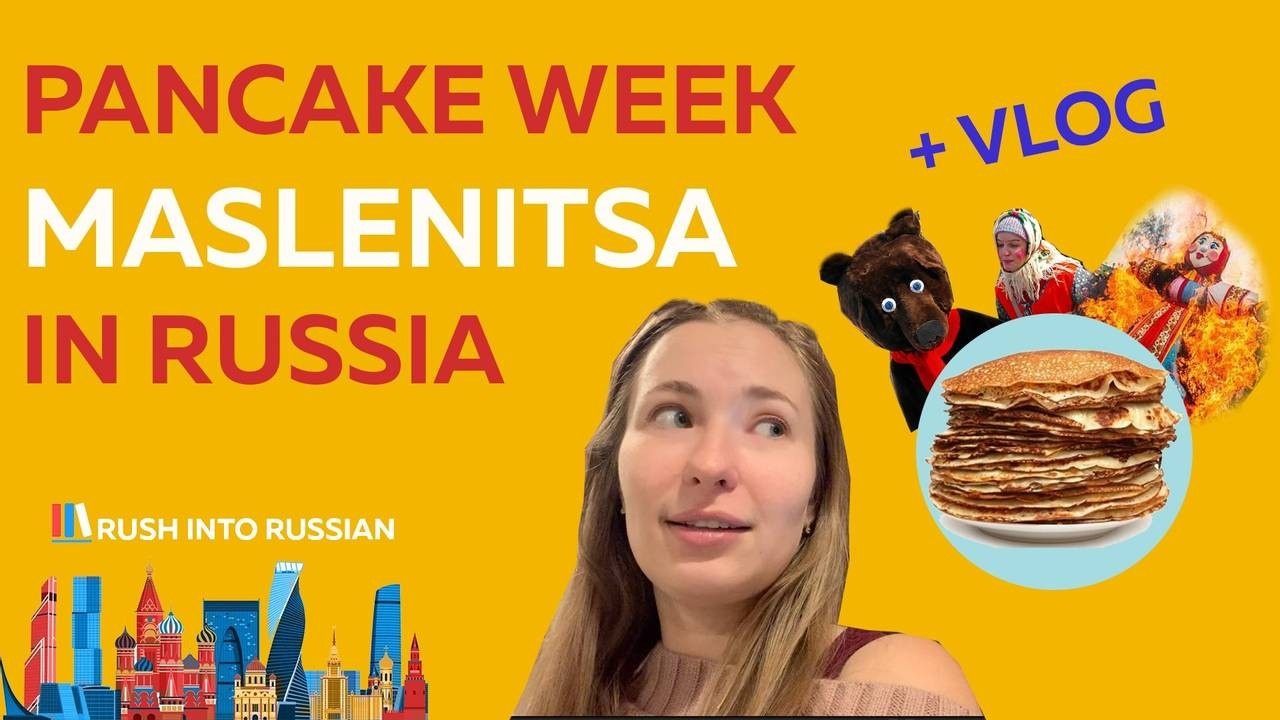Maslenitsa, Russian Pancake Week - 5 Things You Didn't Know

Maslenitsa is an old Russian holiday, celebrating the coming of spring. Also known as “butter week” or “pancake week”, the Russians use this holiday to welcome spring. Perhaps the celebration takes place because it has been HORRIBLY cold to the holiday, and the onset of warmer weather deserves much rejoicing, or – 'if not, why not?'
How exactly do we celebrate? Firstly, by eating tons of crepes (блины / blini / pancakes) and engaging in some festive activities. Since we are so excited for the arrival of spring, we celebrate for 7 whole days. Yes! A whole wonderful week!
Maslenitsa has surprising origins, sacred messages and bizarre traditions, to say the least. Moreover, it takes place in the last week before lent starts, when we naturally eat a lot!
If you meet a "modern" Russian, they will probably say that it is not a big deal, although they are most likely eating crepes (блины) this week. So, let's look at some fun things that you might not have known about until now. A little video of how Russians celebrate Maslenitsa in America will follow. A pretty unusual setting, if I may say so myself.
1. The Pagan Roots of Maslenitsa
Although Maslenitsa is the only holiday recognized by the Russian Orthodox Church, its origins come from pagan traditions. Maslenitsa acquired its name in the 17th century, only after it was officially added to the calendar of church holidays. Before that, Christians called the last week before Lent: “meatless week”.
2. Symbolism of Crepes
Blini (crepes) are freshly made every day, and supposedly, symbolize the Sun. When eating pancakes, people enjoy its warmth and energy. Russians try to eat as many crepes as possible, especially before the approaching seven weeks of the great Lent. You name it: blini with butter or sour cream, jam or meat, mashed potatoes or mushrooms. Let's not for about salmon and caviar!

3. Every day is special during this week
Every day of the pancake week has its own name and particular rituals. Today, unfortunately, these traditions are rarely practiced by the Russian people.
In the past, Maslenitsa was welcomed on the Monday with singing and the making of a straw-stuffed effigy, which was burnt on Sunday (some people still do this today).On the Tuesday, young people would go out and play, more specifically go sledging (yes, the snow has not yet melted).
When the 'sweet day' arrives on Wednesday, people would indulge in pancakes with sweet fillings. Thursday was set aside for physical activities.
On Friday, people visited relatives, particularly mother-in-laws, while young wives hosted parties on Saturday.
Sunday was the climax of the whole week! Public celebrations and an abundance of food - EVERYWHERE! In the central park, entertainers still dress up to this day in traditional Russian costumes. It certainly is a sight to see.
What about the effigy? The grand finale of the pancake week takes place with the burning the effigy of Maslenitsa, dressed in female clothes, which marks the imminent end of winter. In the olden days, people also threw pancakes into the fire as a form of funeral repast for the 'dying' winter.
4. Day of Forgiveness
The final day of Maslenitsa was the Day of Forgiveness. A day when people ask for the forgiveness from others, forgive their foes and with a light heart, enjoy the final round of festivities. No wonder Sunday was the most enjoyable day. Troika (horse) rides, dancing bears, fist fights and fireworks.
5. What do bears have to do with it?
Did I say dancing bears? Yes! The holiday used to have a pagan name “Komoyeditsa” which means 'feeding bears', and has multiple theories regarding its origin. According to one theory, bears felt the spring arriving and began waking up from hibernation. Due to the bear ("Kom") being considered the master of the forest, people brought the animals pancakes as a sign of respect.

So there you have it: 5 fun facts about this interesting week.
How is this useful to you, you might ask? You might consider going to Russia during this week. You are guaranteed to have fun and enjoy lots of delicious food! If you are not traveling to Russia anytime soon, consider remotely taking part in the Forgiveness Day. Who needs to be carrying around old grudges, right?
That is all for today! Here is a little video of the Russian community in America celebrating Maslenitsa.
Stay connected with news and updates!
Join our community to know about the latest news and updates from our team.

